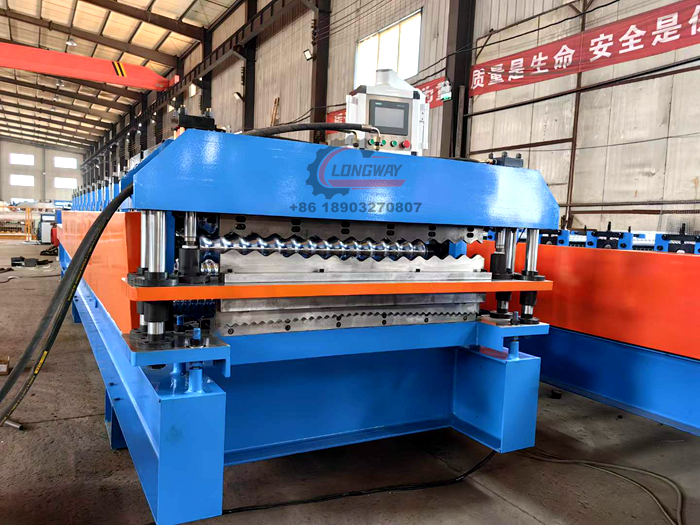roll former manufacturers
The Roll Former Manufacturers Pioneers in Metal Fabrication
The world of manufacturing has continually evolved, and one of the significant advancements in the metal fabrication industry is the development and use of roll formers. Roll former manufacturers play an essential role in producing structural components for various sectors, including construction, automotive, and appliance manufacturing. This article explores the significance of roll former manufacturers, the technology behind roll forming, and the benefits they bring to industries.
Understanding Roll Forming
Roll forming is a continuous bending process in which a long strip of metal is fed through a series of rollers that gradually shape it into the desired cross-section. The process is highly efficient and can produce a variety of profiles with high precision. The metal is typically in coil form, allowing for longer production runs without the need for frequent material changes. This efficiency is why roll forming has become a preferred method for creating components such as roof and wall panels, brackets, and other structural elements.
The Role of Roll Former Manufacturers
Roll former manufacturers are specialized companies that design and produce roll forming machines and systems. Their expertise lies in customizing equipment to meet specific requirements of clients across different industries. These manufacturers not only produce the machinery but also provide essential support services, such as maintenance, repairs, and training on machine operation.
Some of the leading manufacturers in the industry have continually invested in research and development to enhance the capabilities of their machines. Innovations such as automation and computer numerical control (CNC) technology have significantly improved the speed, accuracy, and flexibility of roll forming equipment. As a result, manufacturers can produce complex shapes and designs that were previously challenging or impossible to create.
Benefits of Roll Forming
roll former manufacturers

One of the primary advantages of using roll former manufacturers is the cost-effectiveness of the roll forming process. This method allows for the mass production of metal profiles, resulting in reduced labor costs and minimal material waste. The continuous process means less downtime, enabling manufacturers to meet high-demand orders efficiently.
Moreover, roll forming offers superior consistency in product quality. Since the process is automated, the likelihood of human error is reduced. The precision achieved through advanced roll forming technology leads to components that have uniform measurements, enhancing the overall performance of the final product.
Another significant benefit is the versatility of the roll forming process. Roll former manufacturers can create an extensive range of profiles, from simple shapes to complex cross-sections. This flexibility allows businesses to adapt to changing market demands and consumer preferences without significant investment in new equipment or machinery.
Eco-Friendly Manufacturing
In today’s world, sustainability is a vital consideration in manufacturing practices. Roll forming is inherently more eco-friendly compared to traditional cutting and shaping methods. The process generates less scrap material, and since it uses coils of metal, it minimizes waste. Furthermore, modern roll formers often incorporate energy-efficient features and can utilize recycled materials, aligning with the industry’s growing focus on sustainability.
Conclusion
Roll former manufacturers are pivotal in the metal fabrication industry, providing innovative solutions that enhance efficiency, reduce costs, and meet the demands of various sectors. Their advances in technology and commitment to sustainability make them indispensable partners for businesses looking to remain competitive in a fast-paced market. As industries continue to evolve, the role of roll former manufacturers will likely expand, driving further advancements in manufacturing processes and product quality. Whether in construction, automotive, or appliance production, the impact of roll forming will be felt as manufacturers strive to deliver more efficient and sustainable solutions.
-
Roof Panel Machines: Buying Guide, Types, and PricingNewsJul.04, 2025
-
Purlin Machines: Types, Features, and Pricing GuideNewsJul.04, 2025
-
Metal Embossing Machines: Types, Applications, and Buying GuideNewsJul.04, 2025
-
Gutter Machines: Features, Types, and Cost BreakdownNewsJul.04, 2025
-
Cut to Length Line: Overview, Equipment, and Buying GuideNewsJul.04, 2025
-
Auto Stacker: Features, Applications, and Cost BreakdownNewsJul.04, 2025
-
Top Drywall Profile Machine Models for SaleNewsJun.05, 2025








